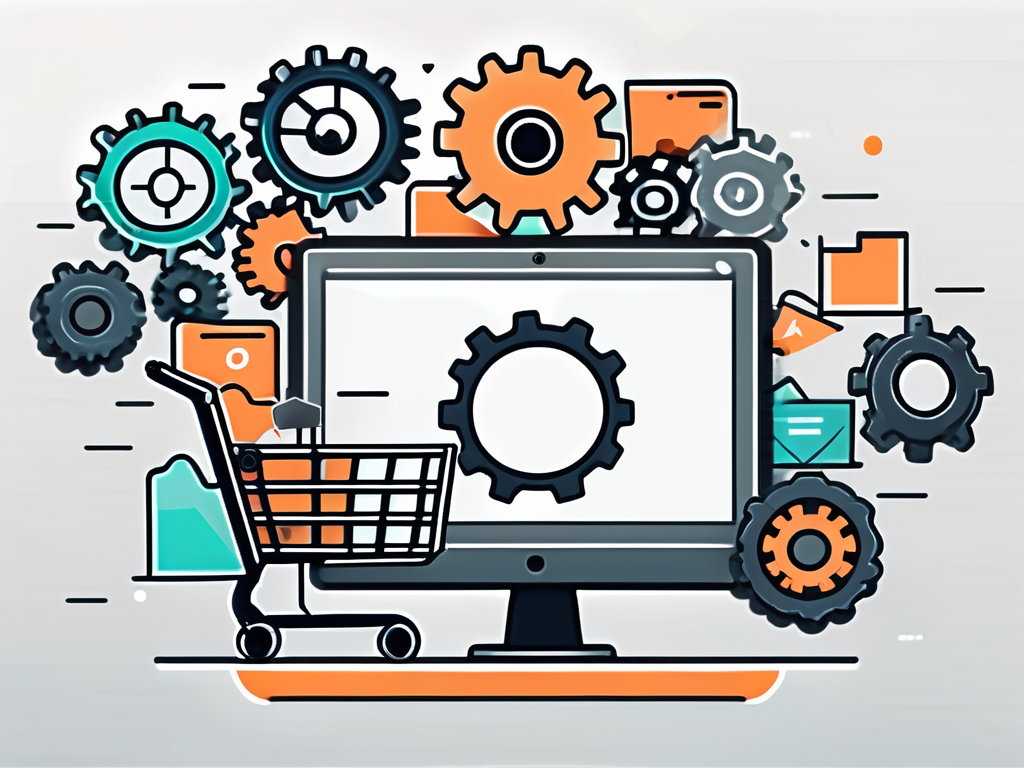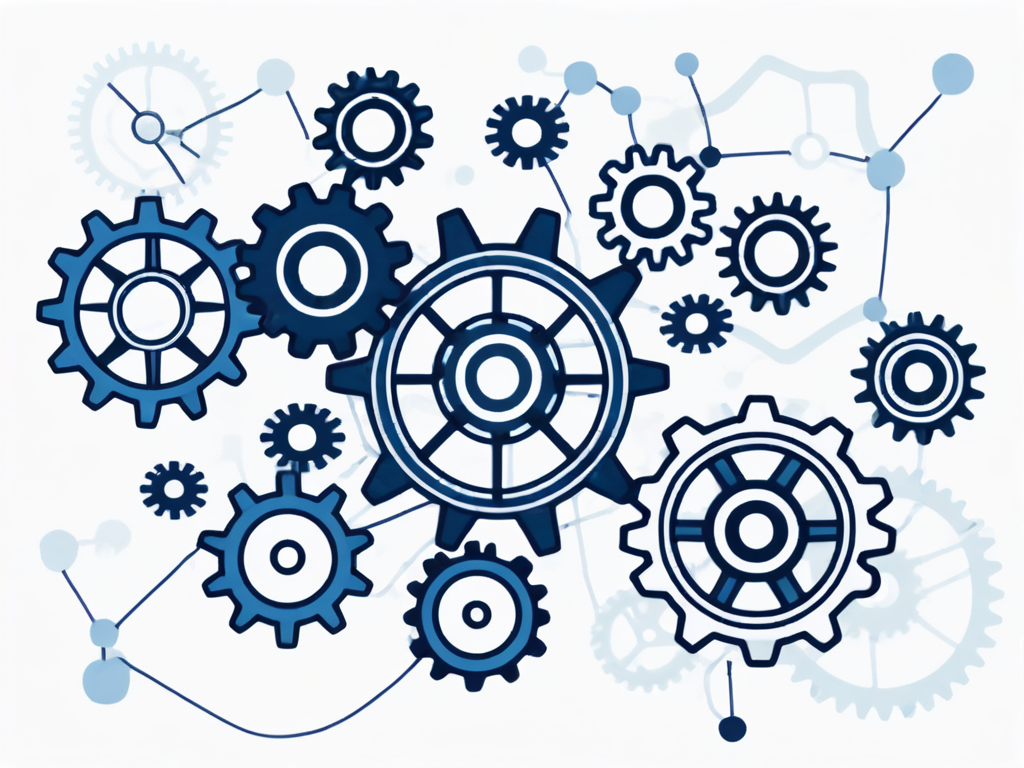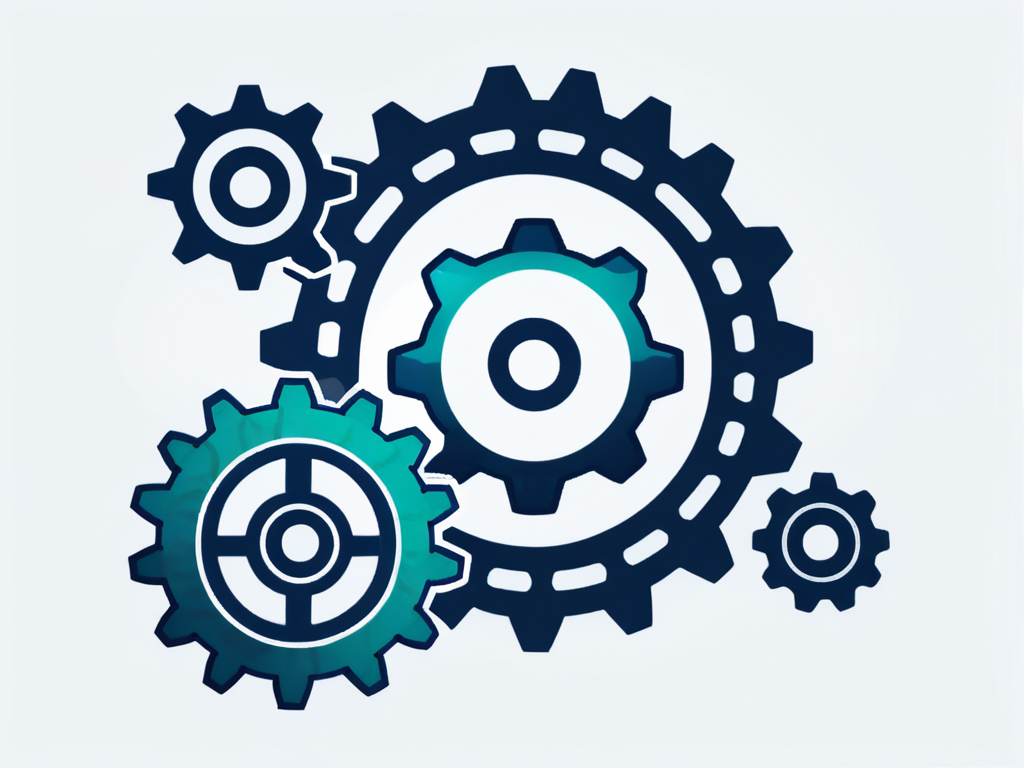
Discover the top automation marketing tools that can supercharge your Shopify store's marketing efforts.
Automation marketing tools have become an indispensable resource for Shopify store owners looking to streamline their marketing efforts. By automating various tasks and processes, these tools enable businesses to save time, increase efficiency, and ultimately drive more sales. In this article, we will delve into the world of automation marketing tools, understand their role in marketing, evaluate different options available for Shopify, and explore ways to integrate and maximize their benefits for your business.
Understanding Automation Marketing Tools
Before we dive into the specifics of automation marketing tools, let's first gain a clear understanding of their purpose and significance. Automation in marketing refers to the use of technology and software to automate repetitive tasks and streamline marketing processes. It allows businesses to deliver personalized and timely messages to their customers, improve customer engagement, and increase conversions.
Automation marketing tools come in different forms, offering a wide range of features and functionalities. From email marketing automation to social media automation, these tools are designed to help businesses optimize their marketing efforts and achieve better results.
The Role of Automation in Marketing
Automation plays a crucial role in modern marketing strategies for several reasons. Firstly, it eliminates the need for manual execution of repetitive tasks, saving time and resources. Imagine having to manually send hundreds of welcome emails or reminders for abandoned carts. With automation marketing tools, these tasks can be set up once and then run automatically, freeing up valuable time for marketers to focus on other important aspects of their campaigns.
Secondly, automation allows for consistent delivery of personalized messages, enabling businesses to connect with their customers on a deeper level. By segmenting their audience based on various criteria, such as demographics, purchase history, or browsing behavior, businesses can create highly targeted and relevant content that resonates with their customers. This personalization not only enhances customer experience but also increases the likelihood of conversions.
Moreover, automation helps in tracking and analyzing marketing data to make informed decisions and improve overall campaign performance. With automation marketing tools, businesses can easily access insightful analytics and reporting features that provide valuable insights into their campaign's performance. They can track metrics like open rates, click-through rates, and conversion rates to measure the effectiveness of their marketing efforts. Armed with this data, businesses can make data-driven decisions, optimize their campaigns, and achieve better results.
Key Features of Automation Marketing Tools
Automation marketing tools come equipped with a variety of features that enhance the effectiveness of marketing campaigns. Let's take a closer look at some common features:
- Automated email campaigns: These tools enable businesses to set up automated email sequences, such as welcome emails, abandoned cart reminders, and personalized product recommendations. With advanced automation capabilities, businesses can create dynamic email campaigns that adapt to customer behavior in real-time, ensuring relevant and timely communication.
- Social media scheduling: Automation marketing tools often include features that allow users to schedule social media posts in advance, ensuring consistent engagement with their audience. Marketers can plan their social media content calendar, create posts, and schedule them to be published at optimal times, even when they are not actively managing their social media accounts.
- Segmentation and personalization: These tools provide the ability to segment customers based on various criteria and deliver personalized content tailored to their interests and preferences. By understanding their audience better, businesses can create targeted campaigns that resonate with specific segments, resulting in higher engagement and conversions.
- Analytics and reporting: Automation marketing tools offer insightful analytics and reporting features, allowing businesses to track their campaign performance, measure ROI, and make data-driven decisions. Marketers can analyze key metrics, identify trends, and gain actionable insights to optimize their campaigns and achieve better results.
- Lead nurturing and scoring: Automation marketing tools often include lead nurturing and scoring capabilities. Businesses can create automated workflows that nurture leads through personalized content and interactions, gradually moving them through the sales funnel. Lead scoring allows businesses to prioritize leads based on their engagement and readiness to make a purchase, enabling sales teams to focus their efforts on the most promising prospects.
As you can see, automation marketing tools offer a wide range of features and functionalities that empower businesses to streamline their marketing processes, deliver personalized experiences, and achieve better results. By leveraging these tools effectively, businesses can optimize their marketing efforts, save time and resources, and ultimately drive growth and success.
Evaluating Automation Marketing Tools for Shopify
With numerous automation marketing tools available for Shopify, it can be overwhelming to choose the right one for your business. To simplify the selection process, consider the following criteria:

Criteria for Choosing the Right Tool
When evaluating automation marketing tools, it's essential to consider factors such as:
- User-friendliness: Look for tools that are intuitive and easy to navigate, as this will save you time and make the implementation process smoother.
- Integration capabilities: Ensure that the chosen tool integrates seamlessly with Shopify and other essential platforms, allowing for a streamlined workflow.
- Customization options: Look for tools that offer flexibility in customization, allowing you to tailor the automation processes to suit your specific business needs.
- Pricing and scalability: Consider the pricing structure and scalability of the tool, ensuring that it aligns with your budget and can accommodate your business growth.
Common Pitfalls to Avoid
While automation marketing tools offer numerous benefits, it's essential to be aware of common pitfalls to avoid any potential issues. Some key things to watch out for include:
- Over-automation: It's crucial to strike a balance between automation and maintaining a human touch. Avoid excessive automation that may make your marketing efforts seem impersonal.
- Failure to monitor: Despite the automation, it's essential to regularly monitor and analyze your marketing campaigns to identify any areas for improvement.
- Not staying up-to-date: Automation marketing tools evolve quickly, so it's important to stay updated with the latest features and trends to maximize your results.
Top-Rated Automation Marketing Tools
Now that we understand the significance of automation marketing tools and the criteria for choosing the right one, let's explore some of the top-rated options available:

Overview of Leading Tools
1. Mailchimp: Known for its user-friendly interface and powerful automation features, Mailchimp is a popular choice among businesses of all sizes.
2. Klaviyo: With robust email marketing and segmentation capabilities, Klaviyo offers advanced automation options tailored specifically for Shopify stores.
3. Omnisend: Omnisend stands out for its omnichannel marketing automation, allowing businesses to reach customers across various channels, including email, SMS, and push notifications.
4. HubSpot: HubSpot offers a comprehensive suite of marketing tools, including automation features that seamlessly integrate with Shopify.
Unique Selling Points of Top Tools
Each automation marketing tool has its own unique selling points that set them apart from the competition:
- Mailchimp: Offers a user-friendly drag-and-drop interface and a wide range of pre-built templates.
- Klaviyo: Provides advanced segmentation options and personalized recommendations based on customer behavior.
- Omnisend: Allows for omnichannel automation and offers built-in SMS and push notification features.
- HubSpot: Provides a complete marketing suite with automation features and powerful CRM integration.
Integrating Automation Tools into Your Shopify Store
Once you've chosen the right automation marketing tool for your Shopify store, the next step is to integrate it seamlessly into your existing workflow. Here's a step-by-step guide to help you through the process:

Step-by-Step Guide to Integration
1. Install and set up the automation marketing tool on your Shopify store.
2. Connect the tool to your Shopify account by following the provided instructions.
3. Import your customer data into the tool to build a comprehensive customer database.
4. Set up automation workflows for different marketing campaigns, such as abandoned cart recovery emails and post-purchase follow-ups.
5. Test the automation sequences to ensure everything is working smoothly.
Troubleshooting Common Integration Issues
While the integration process is usually straightforward, you may encounter some common issues along the way. Here are a few potential problems and their solutions:
- API connection errors: Double-check your API credentials and ensure they are entered correctly.
- Data syncing problems: Make sure your customer data is properly formatted and compatible with the automation tool.
- Email deliverability issues: Verify that your email settings and domain authentication are correctly configured.
Maximizing the Benefits of Your Automation Marketing Tools
Now that your automation marketing tool is integrated into your Shopify store, it's time to maximize its benefits. Here are some best practices to consider:
Best Practices for Using Automation Tools
1. Segmentation and personalization: Leverage the tool's segmentation capabilities to deliver personalized messages to specific customer segments based on their preferences and behaviors.
2. A/B testing: Experiment with different variations of your automated campaigns to identify which strategies yield the best results.
3. Analyze and iterate: Regularly monitor the performance of your automation campaigns and make data-driven adjustments to optimize your results.
Tracking and Improving Your Marketing Efforts
Take advantage of the analytics and reporting features provided by your automation marketing tool. Track key metrics such as open rates, click-through rates, and conversion rates to gauge the effectiveness of your campaigns. Use these insights to make informed decisions and continually improve your marketing efforts.
By leveraging the power of automation marketing tools, Shopify store owners can streamline their marketing processes, improve efficiency, and achieve better results. Consider the features, integration capabilities, and unique selling points of different tools before making your selection. Once integrated, follow best practices and regularly analyze your campaigns to maximize the benefits of these powerful tools. With the right automation marketing tool in place, you'll be well on your way to boosting your Shopify store's success.





